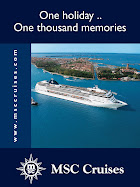Heba El Sahn
Following the devastating incidents of 9/11, many relationships among different groups of people became strained. Nowadays, the concepts of multiculturalism and tolerance are missed on a daily basis. These concepts were readily grasped long ago by a student attending Schutz from the years 1962-1964. This student was fluent in English, French, Italian, Arabic and knew a little Hebrew and Armenian as well. This one very diverse student is Andre Aciman.
Following the devastating incidents of 9/11, many relationships among different groups of people became strained. Nowadays, the concepts of multiculturalism and tolerance are missed on a daily basis. These concepts were readily grasped long ago by a student attending Schutz from the years 1962-1964. This student was fluent in English, French, Italian, Arabic and knew a little Hebrew and Armenian as well. This one very diverse student is Andre Aciman.
Andre Aciman was born in Alexandria and raised in Egypt, Italy, and France. He attended Schutz for a period of two years. He loved the school since it had a more friendly and relaxed environment that was unlike his previous school, Victoria College. The school was a haven for him, guarding him away from the rising nationalism and anti-Semitism that was taking place outside of Egypt. Aciman writes about his time in Alexanria in his acclaimed memoir, Out of Egypt, (available in our school library). He explains that his family was exiled from Turkey during the early 1900s, and so they came to cosmopolitan Alexandria.
The city, at that time, was truly luxuriant and multicultural containing many different ethnic groups. Then, this era was followed by the rule of Gamal Abd El Nasser and his overly patriotic regime. Under his command, the Egyptian government was determined to clear the land from Jews and Westerners. This motive was of course due to the unstable politics back then and the impending Six Days War. Since Aciman’s family members ware both Jewish and European, they decided to leave.
The memoir delves in deep details about the writer’s life and introduces the reader to his extremely interesting and unusual family. He narrates about his notorious Uncle Vili, who was a spy for the Italian army in the Second World War and then switched to spy for the British halfway through, and of his two grandmothers (the Saint and the Princess) who gossip in six languages. The reader feels the strong love the author has for his mother, even though he feared people seeing them together in public. She was deaf and her loud, open outbreaks in the middle of the street caused people to sneer at the Jewish tarsha. Aciman’s aunt’s husband was a very close friend with King Farouk and with the coup d’etat that took place in Egypt, the family found itself in peril too. Their strong connections were no longer protecting them as much as they used too. They faced financial and social problems. The Arabs, who were viewed by the Europeans as being inferior to them, were gaining power and control of their own land. The government feared that any Westerner might betray Egypt by providing information to the enemy and so decided to force them out. Andre Aciman truly enjoyed his time in Alexandria and only left because he had to and not because he wanted to.
Aciman then led a successful career. He received an M.A. and Ph.D. in Comparative Literature from Harvard University and a B.A. in English and Comparative Literature from Lehman College. He taught in Bard College and Princeton University. He specializes in sixteenth and seventeenth century literature; and he is the author of three novels and is he co-author of two others. Right now, he teaches Comparative Literature at the Graduate Center in New York City. Aciman lived a while in many parts of the world. From Egypt to Italy to France to the US. He states in many of his writings that this got him to feel out of place and not really having a place that he calls home. If it were not for these profound events in his life, Andre Aciman probably would not have held this diverse and understanding world-view. If it were not for him leaving Alexandria and living in many parts of the world, he would not have been the truly cosmopolitan man he is today.








ليست هناك تعليقات:
إرسال تعليق